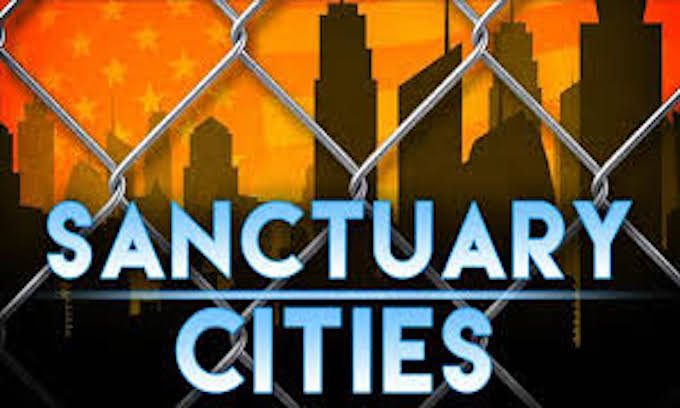Cities and towns can constitutionally refuse to actively help President-elect Donald Trump in his move to deport millions of illegal immigrants — but the new administration could pull millions in federal funding if municipalities don’t oblige, according to legal analysts.
“Most federal grant statutes would allow the president to withdraw funds if cities don’t comply,” said Mark Tushnet, a constitutional law professor at Harvard Law School. “You start out assuming the president can do it.”
Trump has said he would take federal funds away from so-called sanctuary cities — those that refuse to assist the U.S. Immigration and Customs Enforcement by holding suspected illegal immigrants as their status is vetted. It’s a maneuver that could work as a means to compel cooperation, as some cash-strapped cities may not want to give up valuable grants.
“The main tool is withholding funds,” said Mark Krikorian, executive director of the conservative Center for Immigration Studies. “A new president can just cut off the law enforcement funds to a city that isn’t cooperating.”
The Cities United for Immigration Action — a coalition of nearly 100 mayors and municipalities that have advocated against defunding — saw the potential problems with this move. In an Oct. 19, 2015, letter, it urged lawmakers to vote against the Stop Sanctuary Policies and Protect Americans Act.
The coalition said the bill, which ultimately failed, would cut millions in federal funding hampering “law enforcement and community policing programs” and “undermining public safety.”
But this would be Trump’s one maneuver if his administration truly wants to dismantle sanctuary cities. Ordering them to work with ICE runs afoul of the constitution.
“The federal government cannot commandeer state resources,” said Rebecca Sharpless, an immigration professor at University of Miami Law School. “This long-standing principle of federalism would prevent the new administration from compelling state and local authorities to help federal authorities detain and deport immigrants.”
However, even yanking the federal purse strings would be no easy task. For example, there is no clear-cut list of sanctuary cities. Some have enacted policies, while others have opted simply not to hold onto illegal immigrants at the behest of ICE, for fear of being sued.
“We don’t consider ourselves a sanctuary, but some do,” said Thomas M. Caffrey, an attorney for Lehigh County, Pa., which was sued for detaining a suspected illegal immigrant who turned out to be an American citizen.
The county will work with ICE, but it won’t hold onto anyone anymore without a court order. Whether that makes it a sanctuary county is up for interpretation.
“It’s complicated,” Caffrey said. “There’s no specific definition of sanctuary city.”
___
(c)2016 the Boston Herald
Visit the Boston Herald at www.bostonherald.com
Distributed by Tribune Content Agency, LLC.
—-
This content is published through a licensing agreement with Acquire Media using its NewsEdge technology.



















Recent Comments